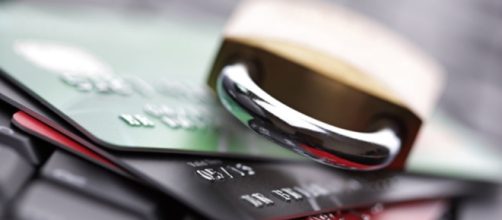It's a dangerous world out there with plenty of scams and fraud going on. But how do you protect yourself? Here are some tips to keep yourself and family safe.
Destroy private records
Tear up – or, if you prefer, shred your private documents by using a cross-cut shredder or shredding service. Credit cards statements, solicitations, and other documents that contain private financial information should be destroyed. Simply throwing them into the trash can still make them accessible to those who want to steal your identity and commit fraud.
Maintain privacy
Be smart about all social media you are a part of. Think twice before leaving personal details, such as your birthday or address, on your profiles. Make sure your privacy settings are strong and be cautious about whom you accept on your pages.
Use strong passwords
Make sure you have strong passwords. To create a strong password, simply use random combinations of letters, upper and lower case combined with numbers and special characters. Create different passwords for different accounts and remember to change them frequently.
Protect your mail
Keep your mail safe. Empty your mailbox as quickly as possible after the mail has arrived. Swiping your mail is one of the easiest ways for a thief to steal your identity.
Avoid mailing outgoing bill payments and checks from your home, since they can easy be stolen from your mailbox and the payee’s name erased by using solvents.
Be vigilant
Know the signs of phishing. Watch out for emails, links or unsolicited phone calls, asking for your personal information. Know who you’re dealing with. Be suspicious of anyone asking for private identity or financial information.
Before you do anything, find out who they are, what company they represent, and the reason for the call. If the person and request are legit, it's not a bad idea to contact the company yourself and have them confirm what you have been asked to do before giving any information.
Secure your phone
Make sure you secure your phone.
We recommend you lock your device with a password using the tips when it comes to your computer. Remember to turn off Bluetooth when you’re not using it, and be cautious when downloading apps from the internet, especially the free versions one which may contain malware.
Protect your Social Security number
Safeguard your Social Security Number. Leave your SSN card in a safe place, and only take it with you when necessary. Be very protective of your personal information. Always ask if information such as Social Security or driver’s license number is absolutely needed. Ask anyone who does ask for your Social Security number about their privacy policy for that and inform them that you do not want any of your information given to anyone else.
Grab your receipts
Avoid leaving a paper trail that other can get their hands on. For example, never leave ATM, credit card or gas station receipts behind after a visit. Grab them before leaving.
Keep your credit card in sight
Yes, credit card skimming happens and if you don't pay attention, you could be a victim of it as well! Never let your credit card out of your sight. Always keep an eye on your card or, when that’s not possible, choose to pay with cash instead.
Be direct
It is also recommended to get your name removed from marketers’ hit lists. Add yourself to the national Do-Not-Call registry (1-888-382-1222) The whole point is that you're sending a clear message that it's a waste of time for unwanted solicitors and scammers to contact you.
Another suggestion is that you can cut down on emails you really don’t need, so-called junk mail, and opt out of credit card solicitations.
Check your credit reports
You’re allowed one free credit report every year from each of the three major credit reporting bureaus. It is recommended to request one report every four months and review it for incorrect information. If you find something that you don’t recall using your card for, alert your card company or the creditor immediately. It is also recommended to look into credit protection services. This service will alert you anytime there is change on your credit report.


